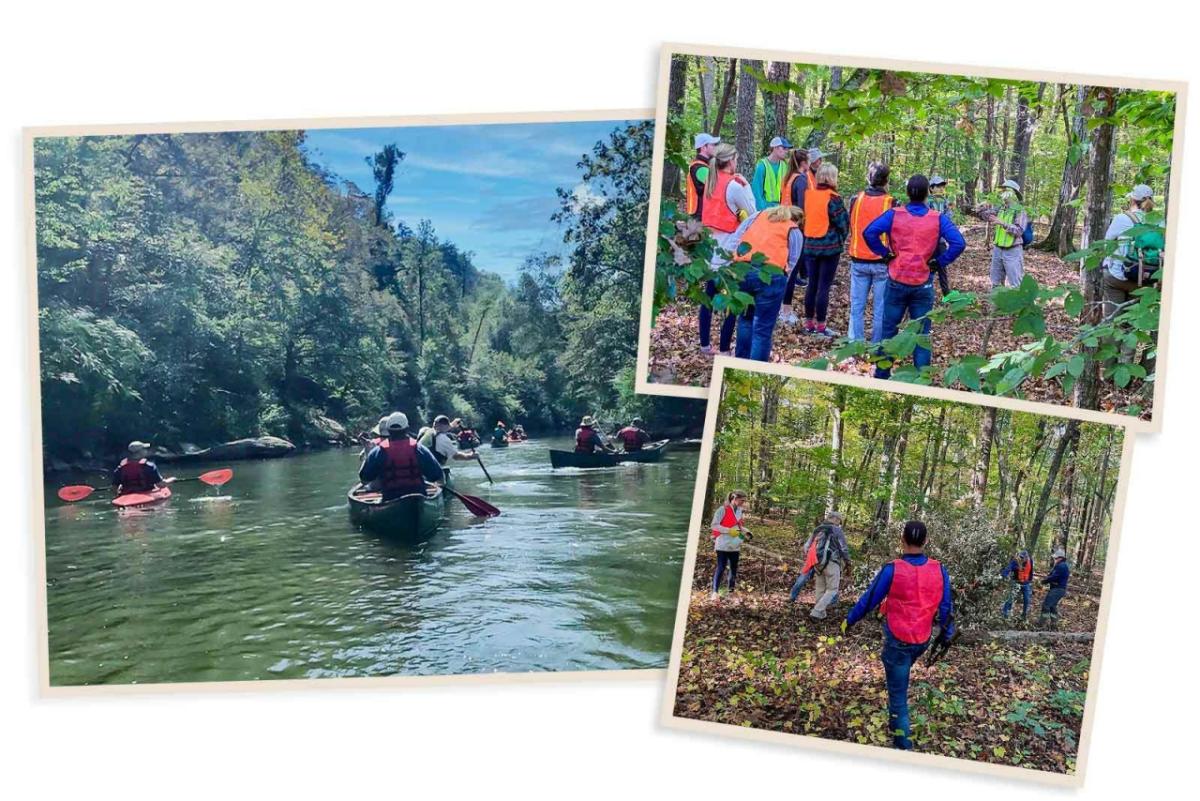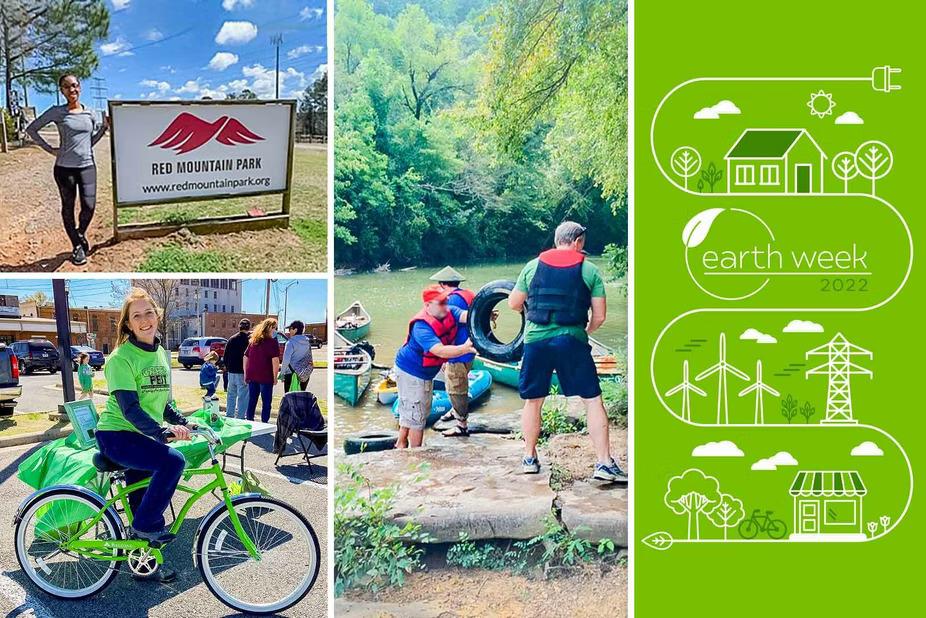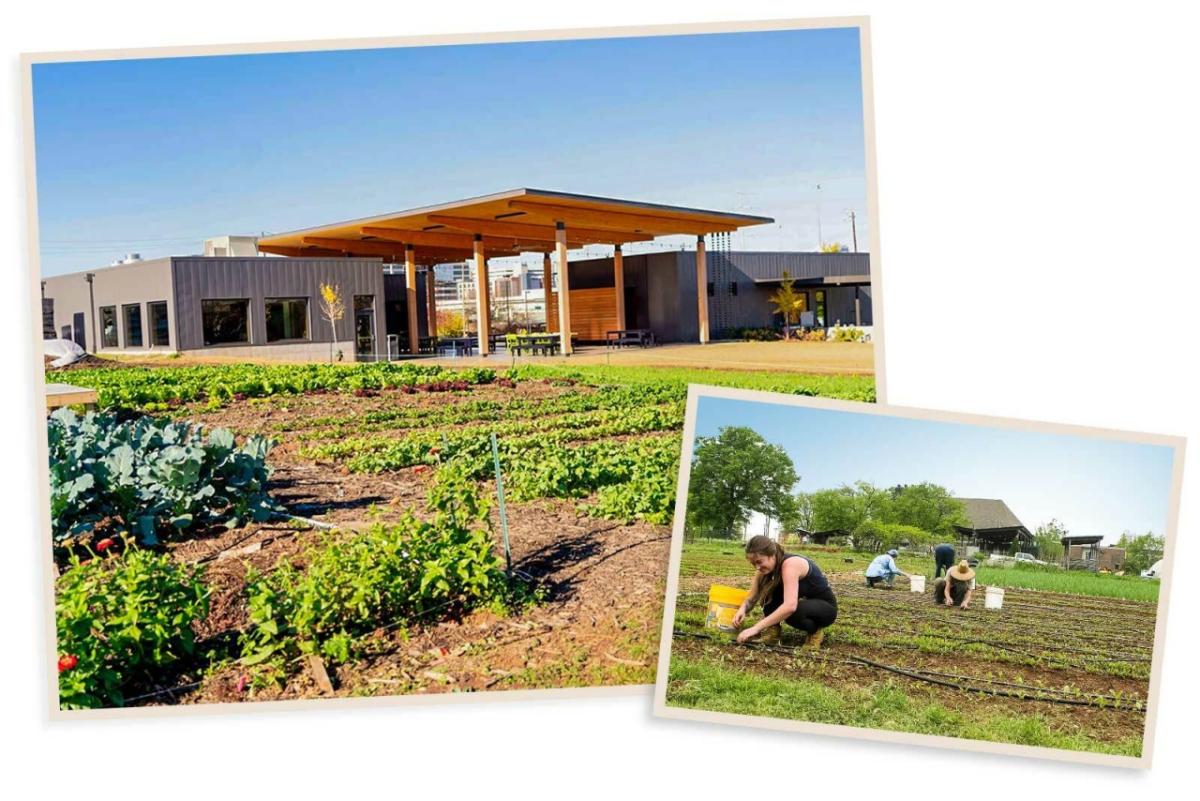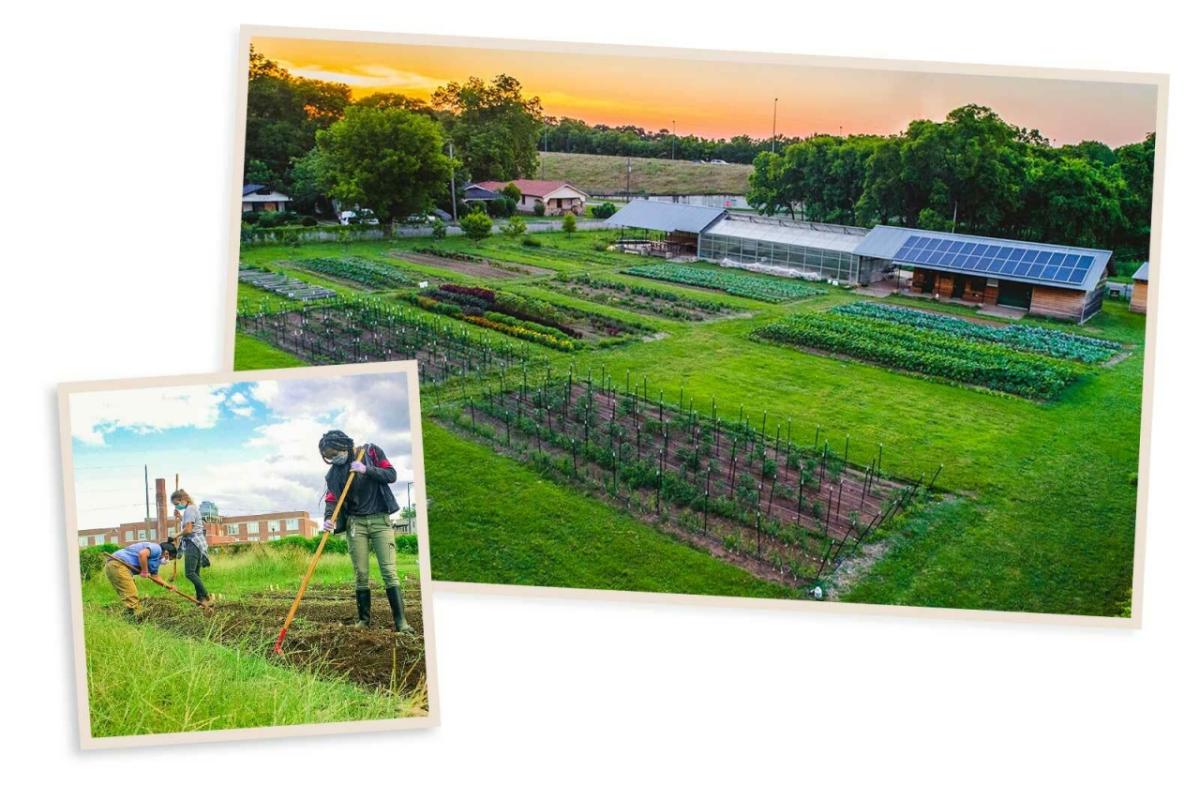Investing in Our Planet Through Volunteerism
During Earth Week, Regions associates share their commitment to the environment by supporting sustainability-focused community organizations.
By Candace Higginbotham
In recognition of Earth Day, Regions is sharing a series of articles that highlight how teams and associates across the bank are contributing to our commitment to operate in environmentally sound ways that make life better for all.
Most of us have good intentions when it comes to environmental practices, but life can get in the way. Many Regions associates are making the time, and they’re walking the walk when it comes to investing in our planet. These associates and the organizations they’re passionate about may inspire you to get involved and make a difference of your own.
Conservation
Jason Bradley, product owner in Digital Banking, recalls a leadership class almost a decade ago and being tasked with creating a presentation about a subject he was passionate about. “For me, it was the river that I grew up on and saw outside of my office window each day.”
That presentation became the inspiration to start volunteering with the Cahaba River Society and Cahaba Riverkeeper. Both organizations are based in the Birmingham, Alabama, area, and work to restore and protect the Cahaba River watershed and its rich diversity of life, as well as preserve recreational and aesthetic values of the river basin.
Bradley began organizing coworkers for group clean-ups as part of Regions’ What a Difference a Day Makes program, which gives every associate one day a year to volunteer with local community organizations.
“A few years ago, Regions Bank won the Cahaba River Society’s Volunteers of the Year Award. They call us the ‘Regions Navy,’” Bradley said. The pandemic slowed down “the Navy’s” efforts in recent years, but Jason is hopeful they’ll be back on the water soon.
The Charlotte market team is also on board for a clean-up event. Juan Cazorla, managing director and group head of the Transportation and Logistics Group of Regions Securities, along with Tim Monte, head of Credit Products and Charlotte market executive; Mike Mason, Mergers and Acquisitions manager; and Thad Walton, Commercial Banking leader – among other local Regions associates – are actively involved with the Catawba Lands Conservancy.
This organization conserves land in the Southern Piedmont of North Carolina to protect water and air quality, wildlife habitats, farmland and open natural spaces.
For Cazorla, this mission is particularly meaningful with the recent growth that Charlotte and the surrounding metro area has experienced. “It’s really important to preserve our natural landscape and the features that make this region unique and beautiful,” he said.
Besides organizing clean-up events, Cazorla is also involved in the annual Clays for Conservation event that takes place in early May. Regions is a title sponsor of the sporting clays tournament and fundraiser. “Regions has a long history with Catawba Lands Conservancy, and I’m pleased to continue this important relationship,” Cazorla said.
When Shelly Gist, Trust Support administrator in Regions Private Wealth Management, joined the Jonesboro Regional Chamber of Commerce, she was looking to get involved in the local community and develop business relationships. She accomplished that, and a lot more.
Her interest and concern about environmental issues led her to join the Chamber’s Green Business Committee. She realized quickly this affiliation was a great match. Her interest became a passion, and she is now chair of the Committee.
“Working with companies and promoting their environmental efforts can have a huge impact,” Gist said. “One business decision from one company can affect every customer, employee and vendor they touch. That ripple effect is exciting and motivating.”
The Green Business Committee hosts three big events each year. The E-Cycle electronics recycling program collects outdated computers, printers and cell phones from individuals and small businesses, and the GlassBash event is a glass-recycling program. Their main event is GreenFest, which they host in partnership with Keep Jonesboro Beautiful, an affiliate of the Keep America Beautiful campaign.
“Conservation and litter control are a great environmental first step for the community,” Gist said. “Not everyone is going to compost, but every person can pick up trash and keep their neighborhood clean and beautiful.”
Conservation is also an interest shared by TaShauna Goldsby, data governance analyst in Regions Data and Analytics. Goldsby serves on the Board of Directors for Red Mountain Park, a 1,500-acre preserve near a busy urban center in Birmingham.
“The park is a place for people from all walks of life to connect and enjoy the outdoors,” said Goldsby. “Around 150,000 people visit Red Mountain Park every year to hike or bike the 15 miles of trails, visit the outdoor center, or bring four-legged friends to enjoy the dog park.”
The opening of Red Mountain Park in 2007 made Birmingham one of the “greenest” cities in America in terms of public park space per resident. “This land was once the site of extensive iron ore mining, so it’s a fascinating combination of green space and a tribute to Birmingham’s mining history,” Goldsby said.
Sustainable Agriculture and Clean Water
Another ecological bright spot in Birmingham, Jones Valley Teaching Farm, is located just a few blocks from Regions Bank’s downtown headquarters. JVTF is a nationally recognized teaching farm and food-education center.
Along with the three-acre Center for Food Education facility, JVTF operates seven teaching farms located on elementary, middle and high school campuses in the city of Birmingham. Their Good School Food program connects students to food, farming, and the culinary arts through standards-based, cross-curricular lessons during the school day.
JVTF also offers two paid apprenticeship programs for students and graduates to learn about farm management and receive agricultural-focused professional training and workforce development.
Regions has provided support for JVTF over the years in many ways, including volunteer efforts, financial support and leadership on their board of directors. Trey Echols, head of Highland Associates, is current Board Chair and Kate Danella, Regions Chief Strategy and Client Experience Officer, also serves on the JVTF board.
“Sustainable farming practices are an overlay to all Jones Valley’s farming and food education programs,” Echols said. “All farm sites use low-till or no-till farming methods, with mostly hand tools and people power doing the work – so we’re always welcoming volunteers!”
Other environmental practices include planting cover crops to improve soil health and reduce erosion, using an integrated pest management strategy to reduce the amount of organic pesticides deployed, and utilizing drip irrigation systems to reduce water usage while cisterns collect. Several sites compost as well as recycle, and teams work to employ “waste diversion” tactics by reusing materials wherever possible.
Clean water and sustainable farming are also priorities for Healing Hands, an international, faith-based aid organization. Amy Williams, mortgage loan coordinator in Franklin, Tennessee, is actively involved in their Walk4Water program, in which volunteers organize four-mile fundraising walks, highlighting the average distance people in impacted villages walk to a water source. Participants raise money to dig and set up a functioning water well.
“The walk we held in Franklin last year raised funds to install both a water well and agricultural system in Matonda Village, Zambia,” Williams said. “Several of my coworkers in the Regions Greater Nashville mortgage team donated, and I’m so grateful for their contributions as we work to change lives.”
Second Helpings, a community organization in Indianapolis, has a different take on hunger relief: by reducing food waste. According to their website, “We don’t just collect food – we rescue food because we refuse to waste when others have none.”
Market PR Specialist Kim Borges is a strong supporter of their mission and message and has served on the Second Helpings Board of Directors and is a current Advisory Council member. “This nonprofit is creatively and effectively addressing the challenges of food insecurity in our community,” said Borges. “Regions Bank has worked with Second Helpings on a variety of initiatives during the past 15 years and I’m so proud to be a part of it.”
In 2020, Second Helpings collaborated with a local restaurant group to prepare and distribute meals in the early days of the COVID-19 pandemic. And during the NCAA College Football Championship, the organization rescued more than 36,000 pounds of food.
Earth Week is not the only time Regions associates focus on the environment, but highlighting the week provides an opportunity for associates to share their experiences and passions, and perhaps inspire a refreshed commitment to community support and volunteerism.






